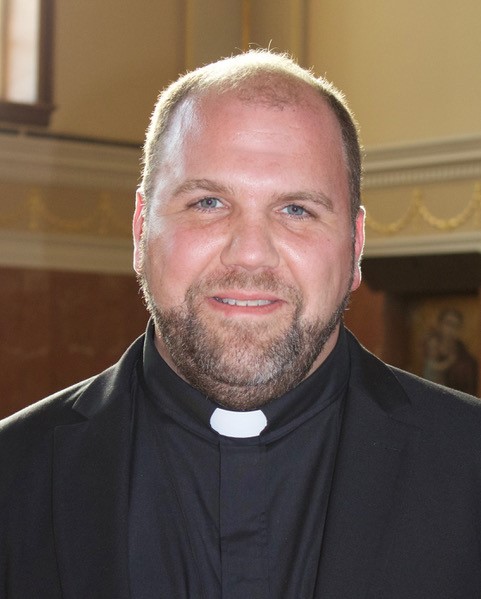In a motu proprio issued Sunday, Jan. 10, Pope Francis gave his approval for female lectors, acolytes and extraordinary ministers of Holy Communion.
In the document, titled Spiritus Domini (The Spirit of the Lord), the Holy Father modified canon law to reflect, now officially, that these ministries “may be entrusted to all suitable faithful, whether male or female, in accordance with what is already implicitly provided for by Canon 230.”
“A consolidated practice in the Latin Church has confirmed, in fact, that such lay ministries, being based on the Sacrament of Baptism, can be entrusted to all the faithful who are suitable, whether male or female,” the pope wrote in his order changing law.
In 1972, what were once called “Minor Orders” were suppressed. Two of the ministries related to those orders were retained in the form of lector and acolyte. They have been recognized since that time as lay ministries. However, permanent installation in these ministries was limited to men. Women were permitted to exercise those roles but could not be installed in them. This provision was found in the Code of Canon Law, which stated that lay men could be stably installed in these ministries and that others could perform the ministries, just not be stably installed.
Archbishop Jerome E. Listecki said he is pleased with the Holy Father’s change in the law.
“I am very glad the Holy Father has made this change because it corrects an inconsistency in the practice and affirms the position of women who act as acolytes and lectors,” he said.
Zabrina Decker, tribunal chancellor/canon lawyer for the Archdiocese of Milwaukee, agreed, adding that it is a positive recognition of the baptismal call for men and women to exercise these formal ministries of lector and acolyte in the Church.
“That is really what it is. This is a formalized ministry and an extension of baptismal grace,” she said. “It extends and formalizes the ministries found in the two paragraphs in the canon dealing with lectors and acolytes.”
In coordination of this new law is the recognition that there needs to be a deeper theological and formal training for this particular ministry, Decker said.
“Training or classes will be left up to the archbishop, as he is the consummate teacher and will likely involve the Office for Liturgy and installation will occur,” she said.
“I am thinking we are looking to establish a process, program or procedure and training, and maybe seek them out at first, from various parishes known to be good lectors and faithful acolytes and invite them to go through the first cohort. I think that later, people could possibly apply in some way, be vetted and trained,” she said. “I think it will be very good and it is definitely needed.”
Widespread misunderstanding has resulted in what was changed by Pope Francis, said Fr. Philip Bogacki, pastor of Christ King Parish and St. Bernard of Clairvaux in Wauwatosa, and it is being repeated by popular Catholic commentators on social media and in some Catholic media outlets.
“Canon law was changed so as to allow men and women to be formally installed in the stable ministry of lector and acolyte. Previously, this was reserved only to men because it was part of the gradual steps to priestly ordination,” he said. “Being formally installed as an acolyte or lector is different from the common practice of lay men and women exercising the practice of reading at Mass and serving as acolytes at parish Masses.”
The incorrect impression is that the pope for the first time is allowing men and women to function in these roles at Mass. Fr. Bogacki said both already do this if the bishops permit it, and most do.
“The commentary in the media is suggesting the Church, until January 2021, was not supportive of women reading at Mass or serving as altar servers. This is an unfair assessment based on a misunderstanding of the formal ministry of acolyte and lector, which is not the same as the practice of someone reading at Mass and serving at Mass,” he explained. “What changed is rather ‘inside baseball.’ Many are not familiar with the ministries of acolyte and lector unless you have been involved in seminary formation. It usually takes some explaining, even for seminarians.”
Fr. Bogacki said there has long been a lack of deep clarity of the theology of the two ministries that were developed after Vatican II to continue the “minor orders,” which were formal steps on the path to the priesthood.
“The minor orders were suppressed several decades ago, and the ministries of lector and acolyte were a way to try and replace them in some way. Based on the brief document alone, it is not my opinion significant clarity has been added to the theology of these ministries,” he said. “What has been stated by Pope Francis is the formal ministries of acolyte and lector do not need to be necessarily connected to priestly ordination and thus do not need to be reserved for men alone.”
The practice of installing both men and women to these ministries is left to the national Bishop’s Conferences. Pope Francis said the change recognizes the service already carried out by many women, but will also emphasize for men preparing for priesthood, who also are formally instituted as lector sand acolytes, that those ministries “are rooted in the sacrament of baptism and confirmation.”
“They all share that the ordained priesthood and the priesthood of the baptized always should work together for the good of the entire Church community,” he said.

Fr. Philip Bogacki
